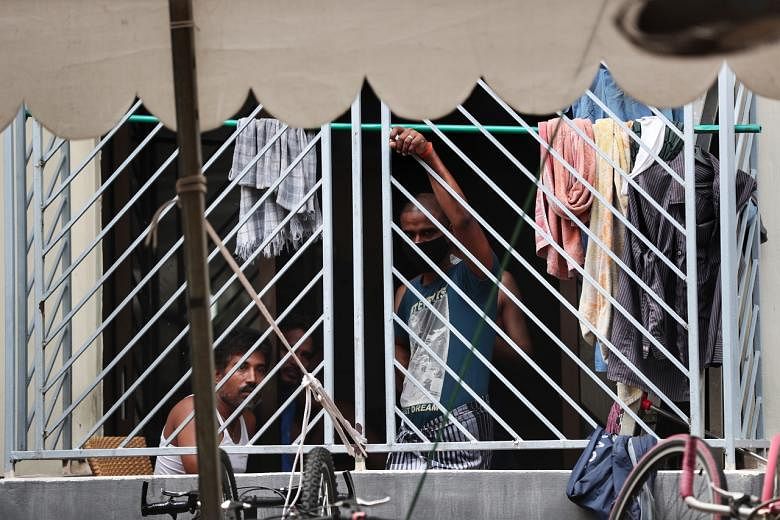Despite Singapore's experience with the Sars outbreak, the Covid-19 pandemic has been a major challenge for it as the virus is far more infectious, Senior Minister and Coordinating Minister for National Security Teo Chee Hean said yesterday.
On March 25, the authorities recorded no cases of Covid-19 in migrant worker dormitories.
But the highly infectious nature of the virus in communal living conditions meant that infections surged rapidly, from 26 cases on April 4 to more than 1,000 new cases daily two weeks later.
Greater surveillance and tighter precautions early on proved to be insufficient as the disease was far more infectious than severe acute respiratory syndrome (Sars), said Mr Teo, who was appointed adviser to the inter-agency task force handling the outbreak in foreign worker dormitories.
The crisis has stretched the nation's resources and capacity, he added.
The Government had started building community care facilities earlier, and plans for these were accelerated and scaled up, with new capacity added daily in April. At the peak of the outbreak on May 12, more than 20,000 patients were being cared for in such facilities. This massive effort was made possible by mobilising resources from the public service, government-linked companies and the private sector, Mr Teo said.
"This is how we are able to take care of every patient without overwhelming our healthcare system and putting lives at risk."
He added that Singapore has managed to "ori-entate, adapt and act rapidly" to respond to each wave of the virus.
"With patience and perseverance, and support and cooperation from everyone, we have brought down the number of cases in our general community. We have also stabilised the outbreak among our migrant workers," he added.
Mr Teo's speech - the third in an ongoing series of TV broadcasts by six ministers - focused on building greater resilience.
He noted that healthcare volunteers stepped up to man the community care facilities, and officers from the Singapore Armed Forces (SAF) and Home Team were also roped in.
Mr Teo said the coronavirus pandemic was not a mission the SAF and Home Team had specifically prepared or trained for.
By setting up the joint task forces (JTFs) within days - to support efforts by the Manpower and Health ministries on the front lines - the SAF and Home Team showed their readiness and flexibility, he added.
He said: "The JTFs played a critical role by establishing a command, control and information system, deploying forward assurance and support teams (Fast) to all the dormitories to look after more than 300,000 workers, and supporting the Ministry of Health's overall medical support plan."
Every day, as many as 1,000 patients have flowed into and through care facilities, he noted.
"Every one of them needed to be individually tracked, tested, monitored, isolated while infectious, moved safely to the right places and given the right treatment," he said.
Mr Teo added that tackling the Covid-19 outbreak in dormitories has been a "tremendous effort", with operations still ongoing to bring the situation fully under control. However, the number of daily cases has already come down to between a third and half of the peak.
There were 422 new coronavirus cases confirmed as of noon yesterday, taking Singapore's total to 39,387.
-
The national broadcasts by Singapore leaders will start from 7.30pm on the following dates:
June 7: Prime Minister Lee Hsien Loong.
June 9: Minister for National Development Lawrence Wong.
June 11: Senior Minister and Coordinating Minister for National Security Teo Chee Hean.
June 14: Minister for Trade and Industry Chan Chun Sing.
June 17: Senior Minister and Coordinating Minister for Social Policies Tharman Shanmugaratnam.
June 20: Deputy Prime Minister Heng Swee Keat.
All speeches will be televised in the four official languages. Or watch it on Gov.sg website, Facebook page, YouTube channel and Twitter.
Describing the Covid-19 pandemic as the "largest and most complex" crisis he has encountered in more than 40 years of public service, Mr Teo said Singapore has responded as one nation - by mobilising its financial reserves, public services, crisis response capacity and social capital.
Mr Teo said the crisis has revealed the need for Singapore to build reserves and the resilience to deal with such unexpected events.
"We need not just financial reserves. We also need able and experienced people, organisational capacity and operational agility."












